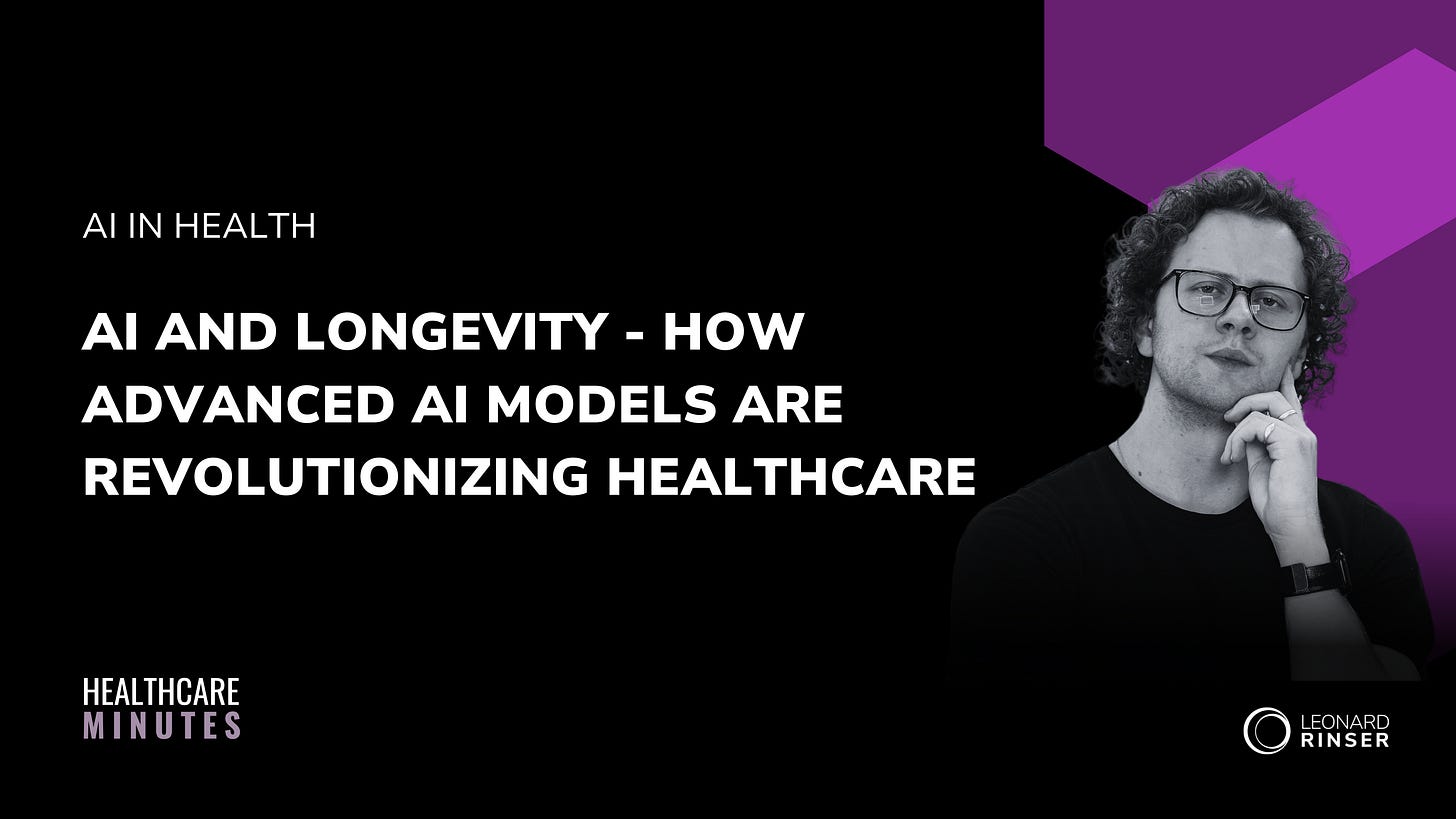AI and longevity: how advanced models are revolutionizing healthcare
NVIDIA’s Evo 2, the largest publicly available AI model for genomic data and the impact of AlphaFold, GPT-4b micro (Retro Biosciences x OpenAI), and the Verge Genomics’ AI platform
The convergence of AI and longevity research
The quest to extend human lifespan has been a topic of science for decades. Recent advancements in artificial intelligence (AI) have accelerated this pursuit, offering unprecedented tools to decode the complexities of human biology. A prime example is NVIDIA's unveiling of Evo 2, the largest publicly available AI model for genomic data, developed in collaboration with the Arc Institute and Stanford University. Evo 2 is designed to predict protein structures, functions, and interactions, thereby supporting discoveries in drug development, synthetic biology, and gene editing. This model operates on the NVIDIA DGX Cloud, transforming processes that once took months into tasks achievable in days or even hours.
The role of AI models in advancing longevity
AI models like Evo 2 are at the forefront of a paradigm shift in healthcare, moving from reactive treatment to proactive health optimization. By analyzing vast datasets of genetic information, these models can identify patterns and anomalies that were previously undetectable, leading to:
Early disease detection: Identifying potential health issues before they manifest clinically.
Personalized medicine: Tailoring treatments based on an individual's unique genetic makeup.
Accelerated drug discovery: Streamlining the identification and development of new therapeutic compounds.
For instance, Evo 2 has been trained on nearly 9 trillion nucleotides, enabling it to predict the effects of genetic mutations and design new genomes, which could lead to groundbreaking treatments and interventions.
Similar AI models pushing the boundaries
Beyond Evo 2, several other AI models are making significant strides in the field of longevity and healthcare:
GPT-4b micro by OpenAI and Retro Biosciences: This specialized AI model focuses on re-engineering proteins, particularly the Yamanaka factors, which have the potential to slow aging and regenerate organs. The collaboration aims to extend human life by a decade through advanced biotechnology.
AlphaFold by DeepMind: Revolutionizing protein structure prediction, AlphaFold provides highly accurate models of protein structures, facilitating a deeper understanding of biological processes and accelerating drug discovery.
Verge Genomics' AI platform: Utilizing AI to analyze extensive human genomic data, Verge Genomics aims to develop treatments for age-related diseases such as Alzheimer's and obesity, bypassing traditional animal models for more direct human applications.
Implications for healthcare and longevity
The integration of advanced AI models into healthcare holds transformative potential:
Enhanced understanding of aging: AI enables researchers to decode the molecular mechanisms of aging, leading to interventions that could delay or reverse age-related decline.
Personalized health strategies: By analyzing individual genetic profiles, AI can recommend lifestyle and therapeutic approaches tailored to maximize healthspan.
Efficient clinical trials: AI can identify suitable candidates and predict responses to therapies, reducing the time and cost associated with bringing new drugs to market.
Future prospects and challenges
While the advancements are promising, several challenges must be addressed:
Ethical considerations: The ability to manipulate genetic material raises questions about consent, equity, and long-term societal impacts.
Data privacy: Handling vast amounts of sensitive genetic information necessitates robust security measures to protect individual privacy.
Regulatory frameworks: Existing regulations must evolve to keep pace with technological advancements, ensuring safety without stifling innovation.
Despite these challenges, the trajectory of AI in longevity research is undeniably forward-moving. The rapid progression suggests that achieving "longevity velocity," where life-extending innovations outpace biological aging, is becoming an increasingly attainable goal.
Embracing the future of AI-driven healthcare
The fusion of AI and biotechnology is bringing a new era of healthcare, one where the mysteries of aging are unraveled, and lifespan extension becomes a realistic objective. Models like Evo 2 exemplify the potential of this synergy, transforming science fiction into scientific reality. As we navigate the ethical and practical considerations, the overarching sentiment is one of optimism and excitement for a healthier, longer future.



